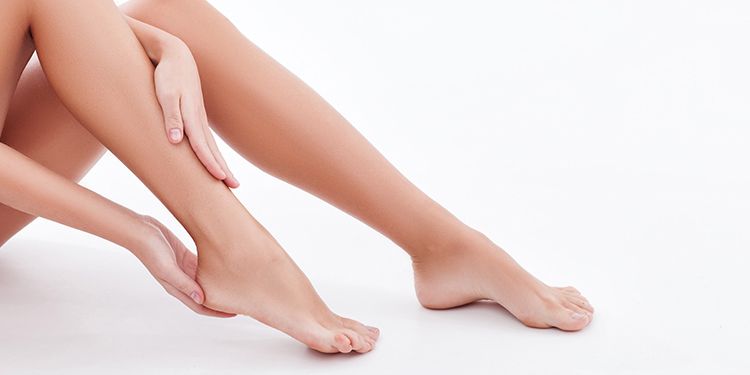Reliable Dermatology Solutions for Excessive Sweating: How to Stop Sweaty Hands and Feet
Reliable Dermatology Solutions for Excessive Sweating: How to Stop Sweaty Hands and Feet
Blog Article
Recognizing the Root Causes of Excessive Sweating and Its Influence on Life
While it is commonly recognized as a physical action to control body temperature, the triggers for excessive sweating can differ extensively amongst individuals, encompassing not just physical aspects however also psychological and emotional components. By diving into the origin creates of hyperhidrosis and exploring its multifaceted results, a deeper understanding of this pervasive concern can be gotten, shedding light on the intricacies that people grappling with excessive sweating browse on an everyday basis.
Physiology of Sweat Glands
The regulation of sweat manufacturing, a vital physiological process, is mostly controlled by the task of sweat glands dispersed across the body. Gland are classified into 2 primary kinds: eccrine and apocrine glands. Eccrine glands are the most numerous and are discovered in nearly all locations of the body. They play an important role in thermoregulation by producing a watery fluid onto the skin's surface, which vaporizes and assists cool down the body down. In contrast, apocrine glands are focused in areas abundant in hair roots, such as the underarms and groin, and their secretions are thicker and milky in appearance.
When the body temperature increases, either as a result of exercise, heats, or emotional stress and anxiety, the nerve system causes the sweat glands to create sweat. This sweat is made up primarily of water and electrolytes like sodium and chloride. The procedure of sweat manufacturing is vital for keeping the body's internal temperature within a slim, optimum array, highlighting the crucial function gland play in human physiology.
Triggers for Excessive Sweating
In comprehending the root creates of extreme sweating, it is important to identify the triggers that can lead to this physical feedback. Physical effort, high temperatures, and spicy foods are additionally understood to set off too much sweating in individuals prone to this problem.
Furthermore, medications such as some antidepressants, opioids, and particular supplements can also act as triggers for hyperhidrosis. Comprehending these triggers is vital in managing extreme sweating effectively - Exessive Sweating. By recognizing and attending to the particular triggers that motivate excessive sweating in a specific, healthcare providers can establish personalized treatment strategies to alleviate this condition and boost the individual's lifestyle
Medical Issue Associated
Connected with too much sweating are various medical problems that can exacerbate this physical feedback. One common condition is hyperhidrosis, a problem characterized by unusually raised sweating that exceeds the body's thermoregulatory requirements. This can show up in focal areas like the palms, soles, underarms, or face, influencing a person's lifestyle because of social shame and pain.
Moreover, endocrine disorders such as hyperthyroidism, diabetes, and menopausal warm flashes can likewise bring about too much sweating. Hyperthyroidism creates an overflow of thyroid hormonal agents, accelerating Learn More metabolism and setting off sweating. Diabetes can induce sweating episodes, particularly during hypoglycemic episodes when blood sugar degrees go down also reduced. Menopausal hot flashes, associated to hormonal fluctuations during menopause, can create intense and sudden sweating, frequently accompanied by flushing and heart palpitations.
Furthermore, infections like tuberculosis, HIV, and endocarditis have been connected with evening sweats, a common symptom recognized to interrupt sleep and influence general well-being. These clinical conditions highlight the varied series of underlying factors that can add to too much sweating, requiring extensive evaluation and monitoring by healthcare specialists.
Mental and psychological Aspects

Effect On Social Communications
Excessive sweating can have profound results on an individual's capacity to engage easily in social communications. The visible indicators of sweat stains or damp spots on clothes can bring about shame and self-consciousness, creating individuals to take out from social scenarios. This withdrawal can impact connections, limit social activities, and prevent professional and personal development.

Additionally, the anxiety and self-confidence concerns stemming from excessive sweating can affect communication and social abilities. Individuals may struggle to concentrate on conversations, join group activities, or reveal themselves with confidence. This can cause sensations of seclusion and isolation, as social links come to be challenging to preserve.
Final Thought

While it is frequently comprehended as a physiological response to manage body blog here temperature level, the triggers for extreme sweating can vary widely amongst individuals, including not only physical factors Going Here yet additionally emotional and psychological components. By diving into the origin creates of hyperhidrosis and exploring its multifaceted results, a deeper understanding of this prevalent problem can be acquired, losing light on the intricacies that individuals grappling with too much sweating navigate on a daily basis.
Physical physical effort, high temperatures, and spicy foods are additionally understood to trigger too much sweating in individuals susceptible to this condition. By determining and dealing with the details triggers that trigger too much sweating in a private, healthcare carriers can establish tailored treatment strategies to minimize this problem and enhance the person's top quality of life.
Excessive sweating can have extensive effects on an individual's capacity to engage easily in social interactions.
Report this page